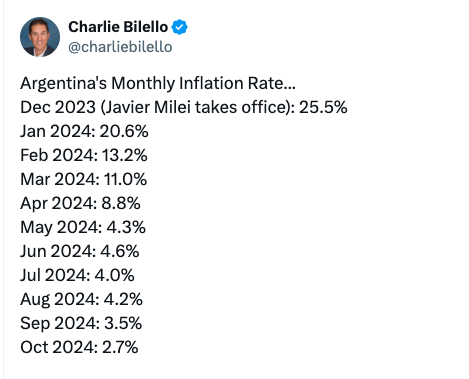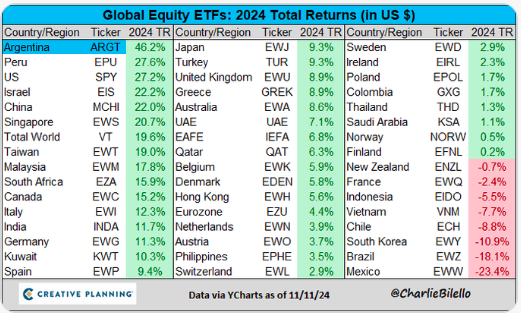When someone mentions Cuba my guess is that most people think of three things.
Communism, old cars and sugar.
 |
| Credit: https://medium.com/@habanaps/driving-around-havana-in-a-classic-car-beyond-the-tour-416b108b01a9 |
Sugar has long been Cuba's most important crop.
For centuries, sugar was the centerpiece of the Cuban economy.
Exports of the popular product provided the hard currency that fueled much of the economy and provided work to hundreds of thousands of Cubans.
For many years Cuba exported more sugar than any other country in the world.
That is why I was shocked when I saw that Cuba now needs to import sugar.
It is not even producing enough to satisfy its own domestic needs.
 |
| Source: https://www.newser.com/story/350539/cuba-once-the-land-of-sugar-now-must-import-it.html |
It is akin to Saudi Arabia not being able to export oil, Mexico failing to export avocados or France and Italy wine.
At one time Cuba was producing 8.5 millions metric tons of sugar per year.
Cuba has recently been producing less than 400,000 metric tons annually.
Cuba has historically consumed about 700,000 tons of sugar per year.
This has meant that sugar in Cuba today is strictly rationed and has actually become a black market item in a country that was once the world's leading exporter.
How did this happen?
In a word---COMMUNISM.
When Cuba turned to communism it turned off its largest export market---the United States.
The United States imposed sanctions which not only cut off the export revenue but it also did not allow the Cubans to obtain the technology and other necessary resources to keep its sugar facilities up to date.
At first, Cuba was able to replace the lost export revenues with sales to the Soviet Union in a communist trade pact that provided sugar to the Soviets and fuel and fertilizer to the Cubans.
However, the fall of the Soviet Union ended that trade deal along with the inflated prices the Cubans were getting from the Soviets for the sugar.
In the meantime, the government-owned mills were producing less and less.
While the Soviet trade deal was in place there was little incentive for farmers and mills to improve productivity, modernize equipment and seek cost efficiencies.
Once the communists lost control in the Soviet Union, and the trade deal was cancelled, the Cubans were exposed and vulnerable in attempting to compete in selling its sugar on the world sugar market.
Cuba simply could not compete with private sector enterprises that had emerged in other parts of the world over the preceding 25 years.
Brazil and India are among the countries that benefited and are now the two largest producers of sugar in the world.
Cuba is nowhere to be found among the leading sugar producers in the world.
 |
| Ten Largest Sugar Producing Countries in the World Source: https://www.researchgate.net/figure/Worldwide-sugar-production-by-the-ten-leading-countries-55_fig3_354322444 |
Of course, what happened to the Cuban sugar industry when communism overtook Cuba is not surprising.
The story has been the same over and over again throughout history.
Once communism and socialism advances and property rights and the private profit motive is removed in an economy, productivity and prosperity in the society suffers.
Consider what has happened in Venezuela since the Marxists took over in that country.
Venezuela sits atop the world in proven oil reserves.
However, Venezuela produces only 10% of what Saudi Arabia does in annual oil production.
Oil production is down 75% since Hugo Chavez and the leftists assumed power in Venezuela and put the oil industry under government ownership and control.
 |
| Credit: https://www.axios.com/2023/06/14/us-crude-oil-prices-venezuela-production |
How about China?
China had a planned socialist economy from its founding in 1949 to 1978. In that year they first introduced the ability for farmers to grow what they wanted and sell much of it at market prices. They opened up most of the rest of the economy to what they refer to as a "socialist market economic system" in 1984. Since that time China's GDP per capita has increased some 44-fold in dollar terms.
Capitalism makes the pie bigger for everyone.
There was never a better test case for comparing capitalism vs. communism on this score than comparing East and West Germany and North and South Korea.
Before the Korean War most of the wealth was concentrated in the North. The South was more agrarian. Things have changed quite a bit in 70 years.
This chart compares the GDP of the two countries in Korean won.
It is hard to even see the small columns that represent North Korea.
 |
| Source: https://www.statista.com/statistics/1035390/south-korea-gdp-comparison-with-north-korea/ |
North Korea has GDP per capita of less than $1,500 per capita. South Korea's is $36,000. Same people. Same cultural background. Very different results.
Similar comparisons could have been made between East and West Germany before they reunified in 1991.
Argentina never adopted full communism but it was governed by a string of leaders who had a socialist ideology that made up their political framework. This ideology included a large government bureaucracy that controlled many aspects of the economy, price and rent controls.
Argentina has suffered hyperinflation, a stagnant economy and bulging government budget for years.
The election of Libertarian Xavier Milei in late 2023 showed that the Argentine people were interested in radical change.
Xavier Milei campaigned on a plan to drastically cut the government bureaucracy and free the economy from government controls.
Milei often brought out a chainsaw as a prop at campaign events to show that he was serious about cutting government bureaucracy in Argentina.
It could also be said that said that turning around the United States is also a piece of cake for Donald Trump compared to the situation that Milei inherited in Argentina.
When Milei was elected inflation was running at a 25.5% per month!
The federal budget deficit was 15% of GDP.
The economy was in recession with GDP contracting by over 25% in the previous five years.
It remains to be seen whether Milei can transform Argentina's economy which still has over 50% of its population living in poverty.
However, the early results in the first year are encouraging.
The inflation rate has been reduced to under 3% per month from the 25% it was when Milei took office.
Last quarter saw Argentina's GDP increase at an 8.5% annual rate.
Bloomberg is expecting that Argentina will see the largest increase in GDP growth in the world over the next 12 months.
 |
| Credit: https://x.com/unusual_whales/status/1874523736352919854 |
It shows once again that productivity and prosperity in any society are going to be best served with the protection of private property rights, limited government bureaucracy and controls and a system that rewards individual initiative and entrepreneurism.
These are all in contravention of the basic tenets of communist and socialist economic systems.
We are told over and over again that these systems have only failed in the past because those who were in charge did it the wrong way.
I wonder if the average Cuban, who cannot even buy sugar to put in his coffee, thinks about that these days?






Once again, thank you Scott for a great, data driven article!
ReplyDeleteGreat content on HeroLuigi.com! I love the creativity and dedication that clearly goes into every post. It’s inspiring to see such unique perspectives and consistent quality. As a fellow content creator, I recently launched my own website — feel free to check it out at Hero Luigi. I’d really appreciate your thoughts or any feedback. Keep up the amazing work!
ReplyDelete